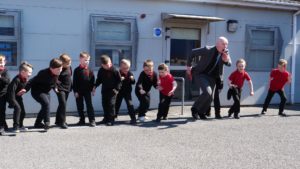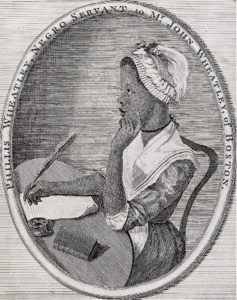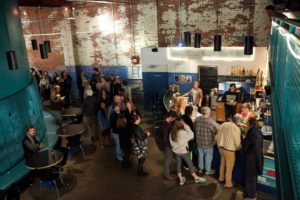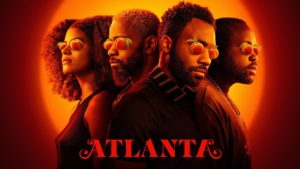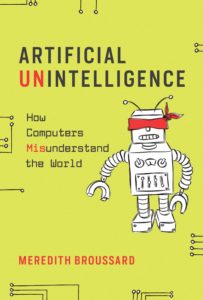UGA held its first Humanities Festival in March 2023
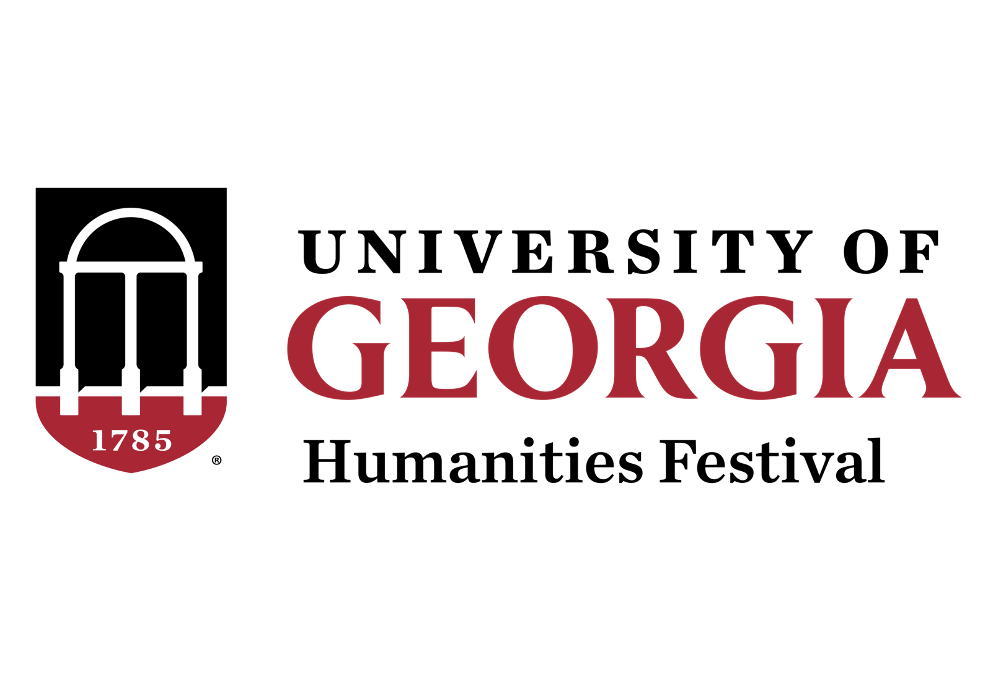
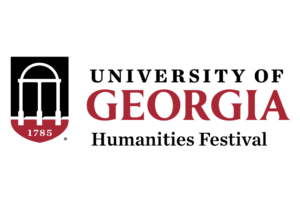 The University of Georgia presented its first Humanities Festival, a series of public events showcasing the richness and diversity of research and practice in the humanities at UGA and throughout our extended community, March 15-27, 2023. The festival was organized by the UGA Humanities Council.
The University of Georgia presented its first Humanities Festival, a series of public events showcasing the richness and diversity of research and practice in the humanities at UGA and throughout our extended community, March 15-27, 2023. The festival was organized by the UGA Humanities Council.
The UGA Humanities Council is supported by the Office of Research, the Office of the Provost, and the Franklin College of Arts and Sciences, with the participation of more than 30 colleges, schools, departments, and units across the university.
Humanities research adds to our knowledge of the world, as scholars investigate differences between cultures and communities around the world and across time, consider the ways art is made and received, or unveil the undercurrents that have shaped history. Humanities education encourages students to think creatively and critically, to reason, and ask questions. And, as the humanities offer insight into nearly every aspect of life, they have been considered a core element of a well-rounded education since ancient times… Put simply, the humanities help us understand and interpret the human experience, as individuals and societies.
– From the National Humanities Center
The humanities comprise those fields of knowledge and learning concerned with human thought, experience, and creativity. By exploring the foundations of aesthetic, ethical, and cultural values and the ways in which they may endure, be challenged, or transformed, humanists help us appreciate and understand what distinguishes us as human beings as well as what unites us… Humanists study the diverse means by which human beings in every age and culture explore, understand, and change their world. The humanities enable us to think about and think through the issues that confront us as global citizens of the twenty-first century.
– From the American Council of Learned Societies (ACLS)
Highlights
 Mar 15 • 4 pm • Special Collections Auditorium
Mar 15 • 4 pm • Special Collections Auditorium
David Beavan: “Beyond Digital Humanities: Weaving Humanities, Research Software Engineering and AI”
David Beavan is the lead research software engineer in the Research Engineering Group (REG) at The Alan Turing Institute, and research affiliate at the University of Edinburgh Centre for Data, Culture & Society (CDCS).
David Beavan from The Alan Turing Institute, the UK’s national institute for data science and artificial intelligence, will lead an interdisciplinary journey showcasing cutting-edge digital humanities scholarship and the leading role of research software engineers in the Living with Machines project. The project is a flagship research initiative that aims to rethink the impact of technology on the lives of ordinary people during the Industrial Revolution (1780-1920), bringing together historians, geographers, linguists and curators, alongside research software engineers and research data scientists.
Through wrangling 109 billion words of newspapers, 129 thousand sheets of maps, and 180 million census entries, Beavan demonstrated how the research team has brought new insights while maximizing collaboration. He also discussed the responsible use of AI, the challenges of navigating intellectual property rights and processing sources securely, and how data science has a lot to learn about representativeness and bias from the humanities.
Finally, Beavan looked towards the future of digital research infrastructure in the UK, and attempted to resolve his identity: digital humanaut, software scribe or research wrangler?
Beavan has been Research Engineering‘s lead for Accelerating AI in the Arts and Humanities. He has led the Research Engineering Group’s work on Data-centric Engineering projects such as AI for Control Problems, Vehicle Grid Integration and the development of the Data Safe Haven Classification Web App. He is an organizer of the award-winning Turing Data Stories, an open community creating and curating data stories.
He is vice president and trustee of the Society of Research Software Engineering, and is a member of the UKRI Peer Review College, reviewing for both AHRC and ESRC. Beavan has served the digital humanities community as an elected member of the European Association for Digital Humanities (EADH), and was a former co-organizer of the the Humanities and Data Science Turing Interest Group.
This event was presented by the Willson Center Digital Humanities Lab (DigiLab), the UGA Libraries, and the UGA Humanities Council.
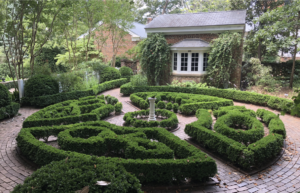 March 15 • 5:30 pm • Founders Memorial Garden
March 15 • 5:30 pm • Founders Memorial Garden
Kickoff Reception for the UGA Humanities Festival
A public gathering with refreshments and conversation to introduce the UGA Humanities Festival in its first year, with remarks by Alan Dorsey, Dean of the Franklin College of Arts and Sciences.
This event was presented by the UGA Humanities Council.
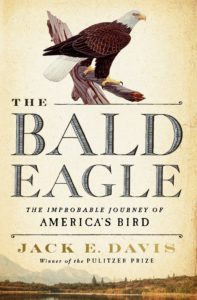 Mar 16 • 5 pm • Jackson St. Building, Room 125
Mar 16 • 5 pm • Jackson St. Building, Room 125
Jack Davis is Rothman Family Chair in the Humanities at the University of Florida. He specializes in environmental history and sustainability studies, and is the Pulitzer Prize-winning author of The Gulf: The Making of an American Sea (2017). His latest book, The Bald Eagle: The Improbable Journey of America’s Bird (Liveright/W. W. Norton, 2022) was named a New York Times Book Review Editor’s Choice, one of the five best nonfiction books of 2022 by the LA Times, an Amazon Best Book of 2022, and an Apple Best Book of 2022.
Davis was one of the recipients of the 2019 Andrew Carnegie fellowship award. His previous books include Race Against Time: Culture and Separation in Natchez Since 1930 (2001), winner of the Charles S. Sydnor Prize for the best book in southern history, and An Everglades Providence: Marjory Stoneman Douglas and the American Environmental Century (UGA Press, 2009), which received a gold medal from the Florida Book Awards.
This event was presented by the Willson Center for Humanities and Arts, the Environmental Ethics Certificate Program, the College of Environment + Design, and the UGA Humanities Council, and was part of the Willson Center‘s Global Georgia public event series.
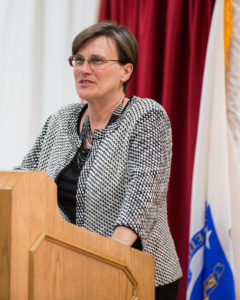 Mar 17 • 4 pm • Delta Innovation Hub
Mar 17 • 4 pm • Delta Innovation Hub
Paula Krebs: “The Humanities at Work”
Paula M. Krebs became executive director of the Modern Language Association in August 2017. She administers the programs, governance, and business affairs of the association and is general editor of the association’s publishing and research programs, as well as editor of two association publications.
Krebs previously served as the dean of the College of Humanities and Social Sciences at Bridgewater State University. Before arriving at Bridgewater State, she was special assistant to the president for external relations at Wheaton College in Massachusetts, an American Council on Education (ACE) Fellow in the president’s office of the University of Massachusetts, and a professor and department chair at Wheaton. She has also been a regular contributor to higher education publications, including the Chronicle of Higher Education’s blog Vitae.
A member of the MLA Executive Council from 2013 to January 2017, Krebs also served on the executive committee of the MLA’s Association of Departments of English (2003–05). She served on the Massachusetts ACE Women’s Network Board of Directors and was a member of the Rhode Island Council for the Humanities Board of Directors from 2009 to 2015.
Krebs earned a PhD in English from Indiana University, where she specialized in Victorian literature and culture, and a BA from La Salle College (now La Salle University).
This event was presented by the Willson Center for Humanities and Arts and the UGA Humanities Council, and was part of the Willson Center’s Global Georgia event series.
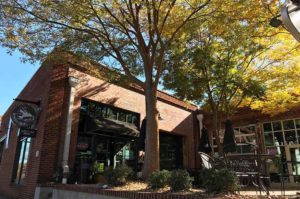 Mar 17 • 7:30 pm • Hendershot’s
Mar 17 • 7:30 pm • Hendershot’s
Willson Center St. Patrick’s Day celebration with Hog-Eyed Paddy
The Willson Center for Humanities and Arts hosted a public celebration of St. Patrick’s Day with Irish music and good cheer at Hendershot’s, free and open to all. Athens duo Hog-Eyed Man joined with multi-instrumentalist Paddy League to form the redoubtable Hog-Eyed Paddy, make for a very special evening.
Fiddler Jason Cade and multi-instrumentalist Rob McMaken usually record and perform as the acclaimed string duo Hog-Eyed Man, playing the traditional music of the southern Appalachians, including many tunes that crossed the Atlantic from Ireland in the 19th century or even earlier. Both hold a deep appreciation for traditional Irish music. McMaken honed his fiddle-tune chops busking in New Orleans, while Cade lived for many years in both Ireland and New York City, where he played in and led weekly sessions with some of today’s best Irish musicians. In 2005, Cade won the senior fiddle division of the Mid-Atlantic Fleadh, allowing him to compete in the All-Ireland Fleadh, held in County Donegal that year. As Cade and McMaken await the production and release of their fifth Hog-Eyed Man album, they have rekindled the Irish music flame.
Multi-instrumentalist Paddy League grew up in a family of Irish and Greek migrants. He has performed and recorded with John Doyle, Mick Moloney, Martin Hayes, John Whelan, James Kelly, Susan McKeown, Jerry O’Sullivan, and many other artists on both sides of the Atlantic. He puts an intimate, improvisatory spin on the commonalities between Irish, Scottish, and Quebecois traditions. Paddy is assistant professor of ethnomusicology at Florida State University and director of the Center for Music of the Americas. He plays bodhran, guitar, mandolin, bouzouki, and concertina, among other instruments.
This event was presented by the Willson Center and the UGA Humanities Council.
Screening and Conversation: Young Plato
The documentary Young Plato tells the story of Kevin McArevey, the headmaster of an all-boys primary school in Belfast, Northern Ireland, and his novel approach to addressing issues of poverty, inner-city decay, and the legacy of sectarian violence that are deeply embedded in his students’ lives: through the teaching and application of Classical philosophy. By encouraging the students to identify and examine fundamental questions about themselves, each other, and the society into which they were born, McArevey is determined to change their outlook on life, and the future of their community.
The screening was followed by a conversation and Q&A with Ian Altman, faculty in English and language arts at Clarke Central High School; Aaron Meskin, professor and head of the UGA department of philosophy; and philosophy teaching assistant Rissa Willis.
This event was presented by the Willson Center for Humanities and Arts, the department of philosophy, and the UGA Humanities Council, and was part of the Willson Center’s Global Georgia event series.
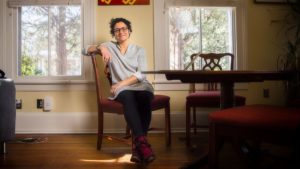 Mar 21 • 4 pm • Special Collections Auditorium
Mar 21 • 4 pm • Special Collections Auditorium
Malinda Maynor Lowery: Women’s History Month Keynote – “Stories of Lumbee Women”
Malinda Maynor Lowery is Cahoon Family Professor of American History at Emory University. She is a historian and documentary film producer who is a member of the Lumbee Tribe of North Carolina. In July 2021 she joined Emory University as the Cahoon Family Professor of American History, after spending 12 years at UNC-Chapel Hill and four years at Harvard University. Her second book, The Lumbee Indians: An American Struggle, was published by UNC Press in 2018. The book is a survey of Lumbee history from the eighteenth century to the present, written for a general audience. Her first book, Lumbee Indians in the Jim Crow South: Race, Identity, and the Making of a Nation (UNC Press, 2010). It won several awards, including Best First Book of 2010 in Native American and Indigenous Studies.
She has written over twenty book chapters or articles, on topics including American Indian migration and identity, school desegregation, federal recognition, religious music, and foodways, and has published essays for popular audiences in places like the New York Times, Oxford American, and Daily Yonder. She has won fellowships and grants from the Mellon Foundation, the National Endowment for the Humanities, the Sundance Institute, the Ford Foundation, and others. Films she has produced include the Peabody Award-winning A Chef’s Life (PBS, 2013-2018), Somewhere South (PBS, 2020), Road to Race Day (Crackle, 2020), the Emmy-nominated Private Violence (HBO, 2014), In the Light of Reverence (PBS, 2001), and two short films, Real Indian (1996), and Sounds of Faith (1997), both of which premiered at the Sundance Film Festival. Her current projects include essays on the shared history of Black and Indigenous Americans and a media experience on humor and racial stereotypes with the Smithsonian Institution.
This event was presented by the Institute for Women’s Studies and the Hargrett Library in partnership with the Willson Center for Humanities and Arts and the UGA Humanities Council. It was part of the UGA Signature Lecture Series. It was followed by reception sponsored by the Hargrett Library.
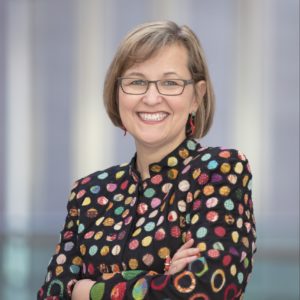 Mar 21 • 5:30 (reception) / 6:30 pm (lecture) • Georgia Museum of Art Auditorium
Mar 21 • 5:30 (reception) / 6:30 pm (lecture) • Georgia Museum of Art Auditorium
Kaywin Feldman: “Building a National Collection in a Changing Nation”
This lecture by Kaywin Feldman, director of the National Gallery of Art in Washington, D.C., honored museum director William U. Eiland on the occasion of his retirement.
Feldman previously led the Minneapolis Institute of Art as its Nivin and Duncan MacMillan Director and President from 2008 to 2019, and directed the Memphis Brooks Museum of Art from 1999 to 2007. She is a member of the board of directors of the Terra Foundation for American Art and a trustee of the National Trust for Historic Preservation, the White House Historical Association, and the Chipstone Foundation. She is a past president of the Association of Art Museum Directors and past chair of the American Alliance of Museums.
Feldman lectures and publishes widely on many aspects of museums in the 21st century. In 2021 Forbes magazine listed Feldman as one of the “50 Over 50” most visionary women making an impact on society.
This program was presented by the Georgia Museum of Art and the Willson Center for Humanities and Arts as part of the Willson Center’s Global Georgia public events series. It was part of the UGA Signature Lecture Series.
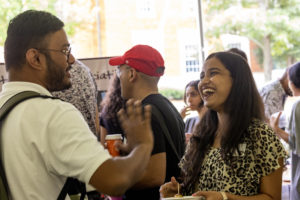 Mar 22 • 12:30 pm • Miller Learning Center, Room 153
Mar 22 • 12:30 pm • Miller Learning Center, Room 153
Global Stories – Humanities Research at UGA and Beyond
A conversation about the global dimensions of humanities research, geographically and imaginatively. The humanities add to people’s knowledge of the world and explore the diverse ways in which humans understand, explore and change it over time. The audience learned about how these perspectives shape the work of professors in women’s studies, the history of music, classics, Korean literature and film, legal history, migration and displacement. The conversation was moderated by Usha Rodrigues, Interim Vice Provost for Academic Affairs and M.E. Kilpatrick Professor of Law.
Panelists:
Rumya Putcha, Institute for Women’s Studies, Hugh Hodgson School of Music
Jordan Pickett, Department of Classics
Anna Abraham, Mary Frances Early College of Education, Torrance Center for Creativity and Talent Development
Mi-Ryong Shim, Department of Comparative Literature
Kalyani Ramnath, Department of History
This event was presented by the Morehead Honors College, the Center for Undergraduate Research Opportunities, the Office of the Provost, the Franklin College of Arts and Sciences, the Office of Global Engagement, the Willson Center for Humanities and Arts, and the UGA Humanities Council.
Roundtable: “Phillis Wheatley Peters in Material Memory”
In this presentation sponsored by the American Antiquarian Society, archivists and other scholars presented materials contextualizing Phillis Wheatley Peters, her world, and her legacies as seen in print artifacts. Participants included AAS vice president for programs Nan Wolverton, Sarah Ruffing Robbins of Texas Christian University, Barbara McCaskill of UGA, and members of the AAS staff.
This event was part of The Genius of Phillis Wheatley Peters: A Poet and Her Legacies, a year-long partnership project by the University of Georgia and TCU on the occasion of the 250th anniversary of the 1773 publication of Wheatley’s Poems on Various Subjects, Religious and Moral.
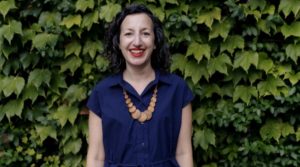 Mar 23 • 5:30 pm • Georgia Museum of Art
Mar 23 • 5:30 pm • Georgia Museum of Art
Emerging Scholars Symposium: “Rethinking America: Contemporary Contemplations on American Art”
Keynote Lecture: Nika Elder: “Early American Portraiture and the Value of Flesh”
Addressing works in the collections and exhibitions of the Georgia Museum of Art as well as related works elsewhere, this talk explained how and why early American portraiture has served as a means to negotiate racial identities in both the past and the present. Elder is assistant professor of art history at American University, where she specializes in North American art from the colonial period to the present, including African American art and the history of photography. Her current research and courses examine the mutually constitutive relationship between art and race throughout modern American history. This lecture was supported by the Terra Foundation for American Art.
The 2023 Emerging Scholars Symposium showcased research by current graduate students and other emerging scholars related to themes of rethinking and reimagining the history of Euro-American, Native American and African American art and material culture through new perspectives. The symposium accompanied the exhibition “Object Lessons in American Art: Selections from the Princeton University Art Museum,” on view February 4 – May 14, 2023 at the Georgia Museum of Art. “Object Lessons” featured four centuries of objects from the Princeton University Museum that challenge and explore the traditions and perspectives of American history, society, art and culture. This symposium was presented in partnership with UGA’s Association of Graduate Art Students.
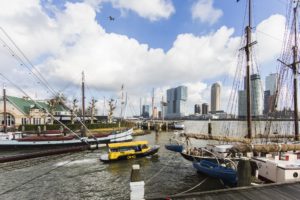 Mar. 27 • 4:30 pm • UGA Chapel
Mar. 27 • 4:30 pm • UGA Chapel
Carola Hein: HGOR Lecture – “Valuing Water, Culture, and Heritage”
Carola Hein is a professor of history of architecture and urban planning at Technical University Delft in the Netherlands. She is also founder and director of the Leiden-Delft-Erasmus PortCityFutures program, and is a professor of water, ports, and historic cities with the Institute of Cultural Anthropology and Development Sociology at Leiden University and the Erasmus University Rotterdam’s School of History, Culture and Communication. Since early 2022, Hein holds the newly established UNESCO Chair for Water, Ports and Historic Cities.
This event was presented as the HGOR Lecture of the College of Environment & Design, in partnership with the Willson Center for Humanities and Arts and the Coasts, Climates, the Humanities, and the Environment Consortium (CCHEC), funded by a grant from the Mellon Foundation. It was part of the UGA Signature Lecture Series.
Full Festival Calendar
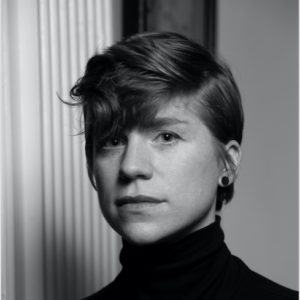 Mar 15 • 11:30 am • Online event
Mar 15 • 11:30 am • Online event
Meg Weeks is a Ph.D. candidate in history at Harvard University, with a secondary field in the Studies of Women, Gender, and Sexuality. She is a 2011 magna cum laude graduate of Brown University, where she wrote a prize-winning honors thesis on political organizing and government policy in the favelas of Rio de Janeiro. Her research interests include race, gender, labor, and social movements in twentieth-century Latin America, particularly in urban Brazil. Her dissertation focuses on grassroots activism among sex workers and domestic laborers during Brazil’s transition from dictatorship to democracy in the 1970s, ‘80s, and ‘90s.
She is also a Portuguese translator and writes widely about art and politics in Latin America, with publications in a number of non-academic journals including Two Lines, Frieze, Artforum, n+1, Revista Rosa, and piauí. Her annotated translation of the memoir of Gabriela Leite, the founder of Brazil’s sex-worker movement, is forthcoming from Duke University Press.
Weeks’s talk was part of “Globalizing Roe: The History and Politics of Abortion Beyond the U.S.,” a speaker series co-sponsored by the department of history’s Gender & History Workshop, the Willson Center for Humanities and Arts, and the Institute for Women’s Studies.
 Mar 15 • 4 pm • Special Collections Auditorium
Mar 15 • 4 pm • Special Collections Auditorium
David Beavan: “Beyond Digital Humanities: Weaving Humanities, Research Software Engineering and AI”
David Beavan is the lead research software engineer in the Research Engineering Group (REG) at The Alan Turing Institute, and research affiliate at the University of Edinburgh Centre for Data, Culture & Society (CDCS).
David Beavan from The Alan Turing Institute, the UK’s national institute for data science and artificial intelligence, will lead an interdisciplinary journey showcasing cutting-edge digital humanities scholarship and the leading role of research software engineers in the Living with Machines project. The project is a flagship research initiative that aims to rethink the impact of technology on the lives of ordinary people during the Industrial Revolution (1780-1920), bringing together historians, geographers, linguists and curators, alongside research software engineers and research data scientists.
Through wrangling 109 billion words of newspapers, 129 thousand sheets of maps, and 180 million census entries, Beavan demonstrated how the research team has brought new insights while maximizing collaboration. He also discussed the responsible use of AI, the challenges of navigating intellectual property rights and processing sources securely, and how data science has a lot to learn about representativeness and bias from the humanities.
Finally, Beavan looked towards the future of digital research infrastructure in the UK, and attempted to resolve his identity: digital humanaut, software scribe or research wrangler?
Beavan has been Research Engineering‘s lead for Accelerating AI in the Arts and Humanities. He has led the Research Engineering Group’s work on Data-centric Engineering projects such as AI for Control Problems, Vehicle Grid Integration and the development of the Data Safe Haven Classification Web App. He is an organizer of the award-winning Turing Data Stories, an open community creating and curating data stories.
He is vice president and trustee of the Society of Research Software Engineering, and is a member of the UKRI Peer Review College, reviewing for both AHRC and ESRC. Beavan has served the digital humanities community as an elected member of the European Association for Digital Humanities (EADH), and was a former co-organizer of the the Humanities and Data Science Turing Interest Group.
This event was presented by the Willson Center Digital Humanities Lab (DigiLab), the UGA Libraries, and the UGA Humanities Council.
 March 15 • 5:30 pm • Founders Garden
March 15 • 5:30 pm • Founders Garden
Kickoff Reception for the UGA Humanities Festival
A public gathering with refreshments and conversation to introduce the UGA Humanities Festival in its first year, with remarks by Alan Dorsey, Dean of the Franklin College of Arts and Sciences.
This event was presented by the UGA Humanities Council.
 Mar 16 • 5 pm • Jackson St. Building, Room 125
Mar 16 • 5 pm • Jackson St. Building, Room 125
Jack Davis is Rothman Family Chair in the Humanities at the University of Florida. He specializes in environmental history and sustainability studies, and is the Pulitzer Prize-winning author of The Gulf: The Making of an American Sea (2017). His latest book, The Bald Eagle: The Improbable Journey of America’s Bird (Liveright/W. W. Norton, 2022) was named a New York Times Book Review Editor’s Choice, one of the five best nonfiction books of 2022 by the LA Times, an Amazon Best Book of 2022, and an Apple Best Book of 2022.
Davis was one of the recipients of the 2019 Andrew Carnegie fellowship award. His previous books include Race Against Time: Culture and Separation in Natchez Since 1930 (2001), winner of the Charles S. Sydnor Prize for the best book in southern history, and An Everglades Providence: Marjory Stoneman Douglas and the American Environmental Century (UGA Press, 2009), which received a gold medal from the Florida Book Awards.
This event was presented by the Willson Center for Humanities and Arts, the Environmental Ethics Certificate Program, the College of Environment + Design, and the UGA Humanities Council, and was part of the Willson Center‘s Global Georgia public event series.
An evening of humanities-related trivia, prizes, and fun, open to all.
Teams formed in advance and on the spot competed at trivia on topics from “Athens Music” to “Things Oscar Wilde Might Have Said.”
This event is presented by the UGA Humanities Council.
The humanities faculty at UGA pilotined a new series on campus featuring accessible talks about TV shows: Screen Time with Your Humanities Professors. The series highlighted the sorts of questions and analytical modes that are characteristic of humanistic thinking, while making connections through mutual interests in pop culture. It was an a.v.-club-slash-humanities spin on UGA’s motto, Et docere et rerum exquirere causas.
In the 1950s, James Baldwin wrote that “it is only in his music that the Negro in America has been able to tell his story.” Back then, Baldwin held that Black musical textures signaled a story “which no American is prepared to hear.” In film and television for the decades that followed, a wide gap yawned, at times howled, between the music and the characters. Midway in the 2010s, however, the gap between music and filmic elements narrowed. In this talk, Professor Ed Pavlić highlighted how Black characters and Black music weave together in unprecedented closeness in four recent series whose nuance and complexity rivals, and at times surpasses, that of our best contemporary writing.
Pavlić is Distinguished Research Professor of English and African American Studies and affiliated faculty in Creative Writing. He teaches classes mainly in modern and contemporary African American and American poetry, fiction, film and music as well as courses in creative writing.
This event was presented by the Franklin College of Arts and Sciences and the UGA Humanities Council.
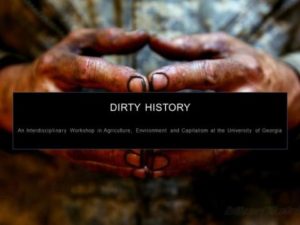 Mar 17 • 12:40 pm • Brooks Hall, Room 145
Mar 17 • 12:40 pm • Brooks Hall, Room 145
Dirty History Book Talk: Jo Guldi
Jo Guldi, Associate Professor, Southern Methodist University, gave a talk about her new book, The Long Land War: The Global Struggle for Occupancy Rights (Yale University Press, 2022).
This free and public event was presented by the Dirty History Workshop and the Willson Center for Humanities and Arts.
Dirty History is an interdisciplinary workshop for scholars working at the intersection of agriculture, environment, and capitalism.
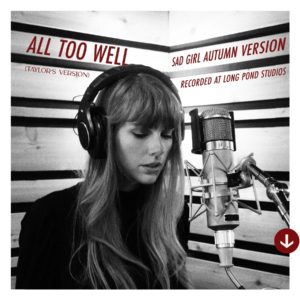 Mar. 17 • 2 pm • Peabody Hall, Room 115
Mar. 17 • 2 pm • Peabody Hall, Room 115
Brandon Polite: “Taylor Swift and the Philosophy of Re-recording”
Brandon Polite is associate professor and chair of philosophy at Knox College. He is also the host of the YouTube series Philosophers Discussing Art. Most of his research is in aesthetics and the philosophy of music, with an emphasis on musical representation and musical experience.
When Taylor Swift’s record label was sold in 2019, the six studio albums she’d recorded for them came under the control of a person with whom she has had years of bad blood: Kanye West’s former manager Scooter Braun. But rather than just shake it off and move on, Swift has taken the unprecedented step of re-recording near-duplicate versions of those albums. With all of the profits made from selling, streaming, and licensing these “Taylor’s Versions” going directly to Swift, she could deprive Braun of potentially hundreds of millions of dollars. The gambit has already paid off. The first two Taylor’s Versions (of Fearless and Red) debuted at Number 1 on the Billboard charts and have sold over one million copies so far; and four more are still on the way.
One question that Swift’s project raises is whether she is creating new works of art that are distinct from the originals. There are at least two arguments for denying that they’re distinct works of art. The first appeals to the fact that the two versions of each album sound so similar that listeners often need to pay careful attention to notice the differences between them. From this it concludes that, similar to how a person copying out War and Peace by hand would produce a genuine instance of Tolstoy’s novel, Swift has merely produced instances of the original albums by re-recording them. This is the formalist argument. The second argument appeals to the fact that Swift intends to subtly improve on the originals when re-recording them. From this it concludes that, similar to how Tolstoy’s drafts were War and Peace at earlier stages in its development, Swift’s original recordings are actually unfinished earlier stages of the Taylor’s Versions. This is the intentionalist argument.
In his presentation, Polite defended the claim that Taylor’s Versions are new works of art distinct from the original recordings against these two arguments. In doing so, Polite worked to untangle some of the thorny metaphysical issues that Swift’s project raises.
This event was presented by the Department of Philosophy, the Hugh Hodgson School of Music, the Lamar Dodd School of Art, the Willson Center for Humanities and Arts, and the UGA Humanities Council.
 Mar 17 • 4 pm • Delta Innovation Hub
Mar 17 • 4 pm • Delta Innovation Hub
Paula Krebs: “The Humanities at Work”
Paula M. Krebs became executive director of the Modern Language Association in August 2017. She administers the programs, governance, and business affairs of the association and is general editor of the association’s publishing and research programs, as well as editor of two association publications.
Krebs previously served as the dean of the College of Humanities and Social Sciences at Bridgewater State University. Before arriving at Bridgewater State, she was special assistant to the president for external relations at Wheaton College in Massachusetts, an American Council on Education (ACE) Fellow in the president’s office of the University of Massachusetts, and a professor and department chair at Wheaton. She has also been a regular contributor to higher education publications, including the Chronicle of Higher Education’s blog Vitae.
A member of the MLA Executive Council from 2013 to January 2017, Krebs also served on the executive committee of the MLA’s Association of Departments of English (2003–05). She served on the Massachusetts ACE Women’s Network Board of Directors and was a member of the Rhode Island Council for the Humanities Board of Directors from 2009 to 2015.
Krebs earned a PhD in English from Indiana University, where she specialized in Victorian literature and culture, and a BA from La Salle College (now La Salle University).
This event was presented by the Willson Center for Humanities and Arts and the UGA Humanities Council, and was part of the Willson Center’s Global Georgia event series.
 Mar 17 • 7:30 pm • Hendershot’s
Mar 17 • 7:30 pm • Hendershot’s
Willson Center St. Patrick’s Day celebration with Hog-Eyed Paddy
The Willson Center for Humanities and Arts hosted a public celebration of St. Patrick’s Day with Irish music and good cheer at Hendershot’s, free and open to all. Athens duo Hog-Eyed Man joined with multi-instrumentalist Paddy League to form the redoubtable Hog-Eyed Paddy, make for a very special evening.
Fiddler Jason Cade and multi-instrumentalist Rob McMaken usually record and perform as the acclaimed string duo Hog-Eyed Man, playing the traditional music of the southern Appalachians, including many tunes that crossed the Atlantic from Ireland in the 19th century or even earlier. Both hold a deep appreciation for traditional Irish music. McMaken honed his fiddle-tune chops busking in New Orleans, while Cade lived for many years in both Ireland and New York City, where he played in and led weekly sessions with some of today’s best Irish musicians. In 2005, Cade won the senior fiddle division of the Mid-Atlantic Fleadh, allowing him to compete in the All-Ireland Fleadh, held in County Donegal that year. As Cade and McMaken await the production and release of their fifth Hog-Eyed Man album, they have rekindled the Irish music flame.
Multi-instrumentalist Paddy League grew up in a family of Irish and Greek migrants. He has performed and recorded with John Doyle, Mick Moloney, Martin Hayes, John Whelan, James Kelly, Susan McKeown, Jerry O’Sullivan, and many other artists on both sides of the Atlantic. He puts an intimate, improvisatory spin on the commonalities between Irish, Scottish, and Quebecois traditions. Paddy is assistant professor of ethnomusicology at Florida State University and director of the Center for Music of the Americas. He plays bodhran, guitar, mandolin, bouzouki, and concertina, among other instruments.
This event was presented by the Willson Center and the UGA Humanities Council.
Katherine Ireland is the interim head of the Willson Center Digital Humanities Lab (DigiLab) in the UGA Libraries. She holds a Ph.D. in linguistics from UGA. Her research is focused on using digital tools in text analysis, corpus linguistics, and language variation. She works with all modes of text data, from traditional corpora to her datasets of Twitter text she captured herself.
Meredith Broussard’s Artificial Unintelligence: How Computers Misunderstand the World (2018, MIT Press) is a guide to understanding the inner workings and outer limits of technology and why we should never assume that computers always get it right.
In Artificial Unintelligence, Meredith Broussard argues that our collective enthusiasm for applying computer technology to every aspect of life has resulted in a tremendous amount of poorly designed systems. We are so eager to do everything digitally—hiring, driving, paying bills, even choosing romantic partners—that we have stopped demanding that our technology actually work. Broussard, a software developer and journalist, reminds us that there are fundamental limits to what we can (and should) do with technology. With this book, she offers a guide to understanding the inner workings and outer limits of technology—and issues a warning that we should never assume that computers always get things right.
Making a case against technochauvinism—the belief that technology is always the solution—Broussard argues that it’s just not true that social problems would inevitably retreat before a digitally enabled Utopia. To prove her point, she undertakes a series of adventures in computer programming. She goes for an alarming ride in a driverless car, concluding “the cyborg future is not coming any time soon”; uses artificial intelligence to investigate why students can’t pass standardized tests; deploys machine learning to predict which passengers survived the Titanic disaster; and attempts to repair the U.S. campaign finance system by building AI software. If we understand the limits of what we can do with technology, Broussard tells us, we can make better choices about what we should do with it to make the world better for everyone.
This event was presented by the Willson Center Digital Humanities Lab (DigiLab), the UGA Libraries, and the UGA Humanities Council.
Immigrant children first speak the language of their mothers, and in Toledo, Ohio’s Little Syria neighborhood where Geha grew up, the first place he would go to find his mother would be the kitchen. Many of today’s immigrants use Skype to keep in touch with folks back in the old country but in those “radio days” of old before the luxuries of hot running water or freezers, much less refrigeration, blenders, or microwaves, the kitchen was where an immigrant mother usually had to be, snapping peas or rolling grape leaves while she waited for the dough to rise. There, Geha’s mother took special pride in the traditional Syro-Lebanese food she cooked, such as stuffed eggplant, lentil soup, kibbeh with tahini sauce, shish barak, and fragrant sesame cookies.
As much a memoir as a cookbook, Kitchen Arabic illustrates the journey of Geha’s early years in America and his family’s struggle to learn the language and ways of a new world. A compilation of family recipes and of the stories that came with them, it deftly blends culture with cuisine. In her kitchen, Geha’s mother took special pride in the Arabic dishes she cooked, cherishing that aspect of her heritage that, unlike language, has changed very little over time and distance. With this book, Geha shares how the food of his heritage sustained his family throughout that cultural journey, speaking to them—in a language that needs no translation—of joy and comfort and love.
Geha is professor emeritus of creative writing at Iowa State University. He is the author of Through and Through: Toledo Stories and Lebanese Blonde. He lives in Ames, Iowa.
This event was presented by the the University of Georgia Press, The Athenaeum, the Willson Center, and the UGA Humanities Council.
Screening and Conversation: Young Plato
The documentary Young Plato tells the story of Kevin McArevey, the headmaster of an all-boys primary school in Belfast, Northern Ireland, and his novel approach to addressing issues of poverty, inner-city decay, and the legacy of sectarian violence that are deeply embedded in his students’ lives: through the teaching and application of Classical philosophy. By encouraging the students to identify and examine fundamental questions about themselves, each other, and the society into which they were born, McArevey is determined to change their outlook on life, and the future of their community.
The screening was followed by a conversation and Q&A with Ian Altman, faculty in English and language arts at Clarke Central High School; Aaron Meskin, professor and head of the UGA department of philosophy; and philosophy teaching assistant Rissa Willis.
This event was presented by the Willson Center for Humanities and Arts, the department of philosophy, and the UGA Humanities Council. It was part of the Willson Center’s Global Georgia event series.
 Mar 21 • 4 pm • Special Collections Auditorium
Mar 21 • 4 pm • Special Collections Auditorium
Malinda Maynor Lowery: Women’s History Month Keynote – “Stories of Lumbee Women”
Malinda Maynor Lowery is Cahoon Family Professor of American History at Emory University. She is a historian and documentary film producer who is a member of the Lumbee Tribe of North Carolina. In July 2021 she joined Emory University as the Cahoon Family Professor of American History, after spending 12 years at UNC-Chapel Hill and four years at Harvard University. Her second book, The Lumbee Indians: An American Struggle, was published by UNC Press in 2018. The book is a survey of Lumbee history from the eighteenth century to the present, written for a general audience. Her first book, Lumbee Indians in the Jim Crow South: Race, Identity, and the Making of a Nation (UNC Press, 2010). It won several awards, including Best First Book of 2010 in Native American and Indigenous Studies.
She has written over twenty book chapters or articles, on topics including American Indian migration and identity, school desegregation, federal recognition, religious music, and foodways, and has published essays for popular audiences in places like the New York Times, Oxford American, and Daily Yonder. She has won fellowships and grants from the Mellon Foundation, the National Endowment for the Humanities, the Sundance Institute, the Ford Foundation, and others. Films she has produced include the Peabody Award-winning A Chef’s Life (PBS, 2013-2018), Somewhere South (PBS, 2020), Road to Race Day (Crackle, 2020), the Emmy-nominated Private Violence (HBO, 2014), In the Light of Reverence (PBS, 2001), and two short films, Real Indian (1996), and Sounds of Faith (1997), both of which premiered at the Sundance Film Festival. Her current projects include essays on the shared history of Black and Indigenous Americans and a media experience on humor and racial stereotypes with the Smithsonian Institution.
This event was presented by the Institute for Women’s Studies and the Hargrett Library in partnership with the Willson Center for Humanities and Arts and the UGA Humanities Council. It was part of the UGA Signature Lecture Series. It was followed by reception sponsored by the Hargrett Library.
 Mar 21 • 5:30 (reception) / 6:30 pm (lecture) • Georgia Museum of Art Auditorium
Mar 21 • 5:30 (reception) / 6:30 pm (lecture) • Georgia Museum of Art Auditorium
Kaywin Feldman “Building a National Collection in a Changing Nation”
This lecture by Kaywin Feldman, director of the National Gallery of Art in Washington, D.C., honored museum director William U. Eiland on the occasion of his retirement.
Feldman previously led the Minneapolis Institute of Art as its Nivin and Duncan MacMillan Director and President from 2008 to 2019, and directed the Memphis Brooks Museum of Art from 1999 to 2007. She is a member of the board of directors of the Terra Foundation for American Art and a trustee of the National Trust for Historic Preservation, the White House Historical Association, and the Chipstone Foundation. She is a past president of the Association of Art Museum Directors and past chair of the American Alliance of Museums.
Feldman lectures and publishes widely on many aspects of museums in the 21st century. In 2021 Forbes magazine listed Feldman as one of the “50 Over 50” most visionary women making an impact on society.
This program was presented by the Georgia Museum of Art and the Willson Center for Humanities and Arts as part of the Willson Center’s Global Georgia public events series. It was part of the UGA Signature Lecture Series.
 Mar 22 • 12:30 pm • Miller Learning Center, Room 153
Mar 22 • 12:30 pm • Miller Learning Center, Room 153
Global Stories – Humanities Research at UGA and Beyond
A conversation about the global dimensions of humanities research, geographically and imaginatively. The humanities add to people’s knowledge of the world and explore the diverse ways in which humans understand, explore and change it over time. The audience learned about how these perspectives shape the work of professors in women’s studies, the history of music, classics, Korean literature and film, legal history, migration and displacement. The conversation was moderated by Usha Rodrigues, Interim Vice Provost for Academic Affairs and M.E. Kilpatrick Professor of Law.
Panelists:
Rumya Putcha, Institute for Women’s Studies, Hugh Hodgson School of Music
Jordan Pickett, Department of Classics
Anna Abraham, Mary Frances Early College of Education, Torrance Center for Creativity and Talent Development
Mi-Ryong Shim, Department of Comparative Literature
Kalyani Ramnath, Department of History
Please register to attend.
This event was presented by the Morehead Honors College, the Center for Undergraduate Research Opportunities, the Office of the Provost, the Franklin College of Arts and Sciences, the Office of Global Engagement, the Willson Center, and the UGA Humanities Council.
Roundtable: “Phillis Wheatley Peters in Material Memory”
In this presentation sponsored by the American Antiquarian Society, archivists and other scholars presented materials contextualizing Phillis Wheatley Peters, her world, and her legacies as seen in print artifacts. Participants included AAS vice president for programs Nan Wolverton, Sarah Ruffing Robbins of Texas Christian University, Barbara McCaskill of UGA, and members of the AAS staff.
This event was part of The Genius of Phillis Wheatley Peters: A Poet and Her Legacies, a year-long partnership project by the University of Georgia and TCU on the occasion of the 250th anniversary of the 1773 publication of Wheatley’s Poems on Various Subjects, Religious and Moral.
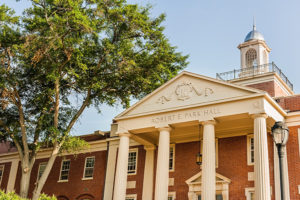 Mar 23 • 5:30 pm • Park Hall, Room 144
Mar 23 • 5:30 pm • Park Hall, Room 144
Between Lines: English Graduate Student Research Showcase
English Department graduate students discussed the personal motivations and gaps in scholarship that drive their research, presenting excerpts from both scholarly and creative work. Topics included multilingual poetics, mothering networks and practices among Black women in the South, environmental humanities, and early modern literature. In lieu of a Q&A, attendees were encouraged to mix with the presenters and ask questions at a reception at the end of the event.
Panelists:
Saurabh Anand, Rhetoric and Composition PhD student
Chanara Andrews-Bickers, English PhD candidate
Mikaela Warner, English PhD candidate
Zack Anderson, Creative Writing PhD candidate
Christina Wood, Creative Writing PhD candidate
This event was presented by the department of English, the Creative Writing Program, the Willson Center for Humanities and Arts, and the UGA Humanities Council as part of the UGA Humanities Festival.
 Mar 23 • 5:30 pm • Georgia Museum of Art
Mar 23 • 5:30 pm • Georgia Museum of Art
Emerging Scholars Symposium: “Rethinking America: Contemporary Contemplations on American Art”
Keynote Lecture: Nika Elder: “Early American Portraiture and the Value of Flesh”
Addressing works in the collections and exhibitions of the Georgia Museum of Art as well as related works elsewhere, this talk explained how and why early American portraiture has served as a means to negotiate racial identities in both the past and the present. Elder is assistant professor of art history at American University, where she specializes in North American art from the colonial period to the present, including African American art and the history of photography. Her current research and courses examine the mutually constitutive relationship between art and race throughout modern American history. This lecture was supported by the Terra Foundation for American Art.
The 2023 Emerging Scholars Symposium showcased research by current graduate students and other emerging scholars related to themes of rethinking and reimagining the history of Euro-American, Native American and African American art and material culture through new perspectives. The symposium accompanied the exhibition “Object Lessons in American Art: Selections from the Princeton University Art Museum,” on view February 4 – May 14, 2023 at the Georgia Museum of Art. “Object Lessons” featured four centuries of objects from the Princeton University Museum that challenge and explore the traditions and perspectives of American history, society, art and culture. This symposium was presented in partnership with UGA’s Association of Graduate Art Students.
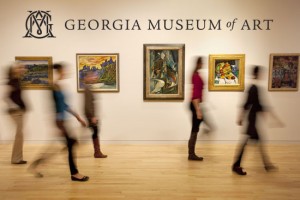 Mar 24 • Time TBA • Georgia Museum of Art
Mar 24 • Time TBA • Georgia Museum of Art
Emerging Scholars Symposium: “Rethinking America: Contemporary Contemplations on American Art”
 Mar. 27 • 4:30 pm • UGA Chapel
Mar. 27 • 4:30 pm • UGA Chapel
Carola Hein: HGOR Lecture – “Valuing Water, Culture, and Heritage”
Carola Hein is a professor of history of architecture and urban planning at Technical University Delft in the Netherlands. She is also founder and director of the Leiden-Delft-Erasmus PortCityFutures program, and is a professor of water, ports, and historic cities with the Institute of Cultural Anthropology and Development Sociology at Leiden University and the Erasmus University Rotterdam’s School of History, Culture and Communication. Since early 2022, Hein holds the newly established UNESCO Chair for Water, Ports and Historic Cities.
This event was presented as the HGOR Lecture of the College of Environment & Design, in partnership with the Willson Center for Humanities and Arts and the Coasts, Climates, the Humanities, and the Environment Consortium (CCHEC), funded by a grant from the Mellon Foundation. It was part of the UGA Signature Lecture Series.

